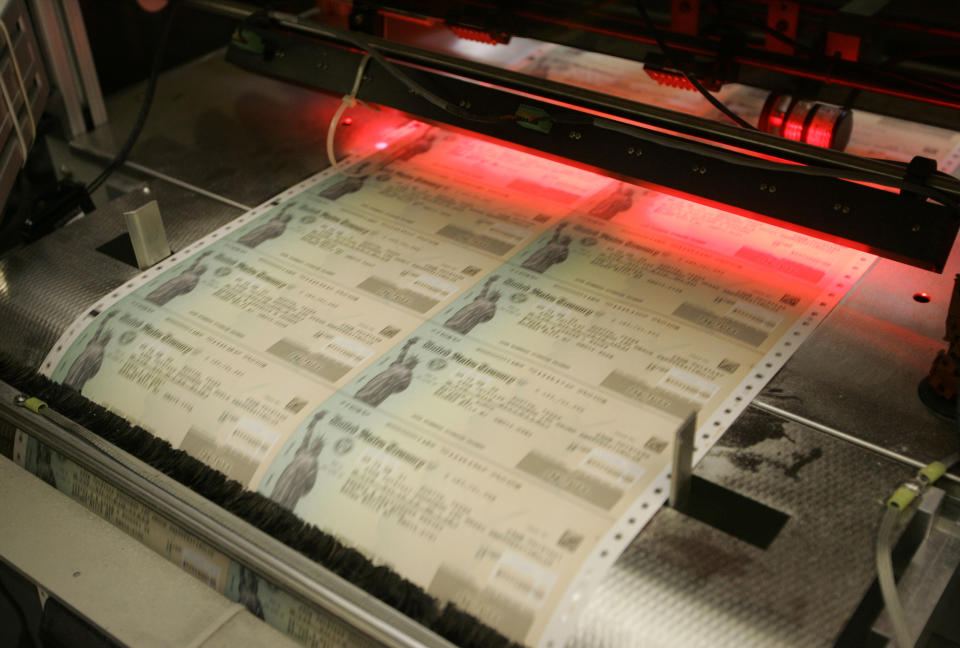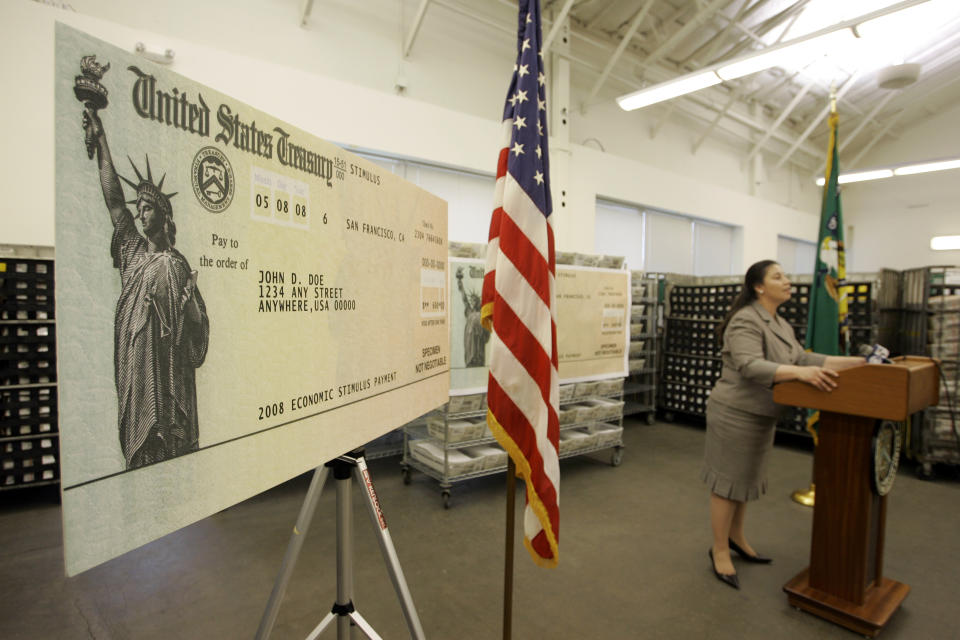Social Security recipients will get a stimulus check without filing taxes, Treasury says
Social Security recipients won’t need to file a simplified tax return to receive their coronavirus relief check. Instead, their payment will be automatically deposited in their bank accounts, the Treasury Department and the Internal Revenue Service clarified on Wednesday.
The announcement comes after the IRS posted a notice on its website on Monday, saying that some taxpayers who typically don’t file returns would need to file a simple tax return to get the payment.
That initially included those who receive Social Security benefits and don’t file returns, prompting an outcry from some Democrats and others.
The IRS instead will use the information they have from Form SSA-1099 and Form RRB-1099 to determine a Social Security recipient’s eligibility for the stimulus check. It will also use the details provided there to send payment as a direct deposit or check, depending on they typically receive benefits.

‘A significant burden’
A letter Wednesday signed by 41 Democratic Senators addressed their concerns about the requirement to file a tax return and urged the Treasury to ensure that the stimulus checks are automatically sent to Social Security recipients.
“This filing requirement would place a significant burden on retired seniors and individuals who experience disabilities,” the letter said.
In 2008, the government also required Social Security recipients to file their tax returns to get the stimulus checks then, resulting in 3.5 million being left out because they didn’t file, according to an analysis from the Treasury Department.
Who gets a stimulus check?
“Our updated estimate is that 93.6 percent of [tax] filers will have a rebate,” said Garrett Watson, senior policy analyst at The Tax Foundation. “And this works out to approximately 140 million households.”
Your eligibility is based on your most recent tax return and your adjusted gross income. If you already filed your 2019 taxes, your eligibility will be based on that. If not, the Internal Revenue Service will use your 2018 taxes to determine if you qualify.
The benefit is available not only to those who have filed taxes, but also to those who receive Social Security benefits as long as they’ve received their SSA-1099 form.
Read more: Tax deadline postponed: Why you should still file as soon as you can
Single adults with income up to $75,000 will get a $1,200 payment. Married couples with income up to $150,000 will get $2,400. Single parents who file as head of household with income up to $112,500 will get the full $1,200 check.
Additionally, Americans who qualify for the stimulus payment and have children will get an additional $500 per child under 17.
Reduced checks will be available for single adults who earn between $75,001 and $99,000 and married couples who earn between $150,001 and $198,000. The check will be reduced by $5 for every $100 over $75,000 for single adults and $150,000 for married couples.

Who doesn't get a check?
Single adults who make more the $99,000 and married couples who earn more than $198,000 won’t receive stimulus checks.
Those without a Social Security number and nonresident aliens — those who aren’t a U.S. citizen or U.S. national and don’t have a green card or have not passed the substantial presence test — aren’t eligible.
You’re also ineligible if your parents claim you as a dependent on their taxes.

Do you have to pay back the stimulus check?
No. The stimulus payment is actually a refundable credit against your 2020 tax liability, according to Kyle Pomerleau of the American Enterprise, and is paid out as an advanced refund. That means you don’t have to wait to file your 2020 taxes to get the money.
It also doesn’t reduce any refund you would otherwise receive, Watson said.
In fact, if you don’t qualify for the stimulus check now based on your 2018 or 2019 tax returns, you may be able to qualify to take the tax credit next year when you file your 2020 taxes if your income meets the thresholds.
Denitsa is a writer for Yahoo Finance and Cashay, a new personal finance website. Follow her on Twitter @denitsa_tsekova.
READ MORE:
'I may lose everything': Americans reel from job losses as coronavirus stalls economy
What to do if you lose your health insurance during the coronavirus outbreak
Read more personal finance information, news, and tips on Cashay
Follow Yahoo Finance on Twitter, Facebook, Instagram, Flipboard, SmartNews, LinkedIn, YouTube, and Reddit.

 money
money 
